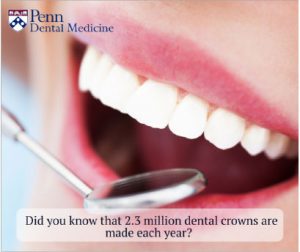Information Library
Start Reading

If you want to know how to define prosthodontist you can get a clear and concise definition from The American College of Prosthodontists. According to the ACP, prosthodontics is the field of dentistry that specializes in “the diagnosis, treatment planning, rehabilitation, and maintenance of the oral function, comfort, appearance, and health of patients with clinical conditions associated with missing or deficient teeth and/or oral and maxillofacial tissues.”
In addition to completing dental school, a prosthodontist trains for an additional three years in an American Dental Association accredited prosthodontic graduate program, giving them the advanced training and education they need to provide specialized care and restore smiles.
Now that you know how to officially define prosthodontist, it’s time to learn the symptoms and conditions they treat. If you’re experiencing any of these symptoms and conditions, it’s important to see your dentist and ask them to refer you to a prosthodontist to treat these issues.
Here are just some oral health conditions that should be treated by a prosthodontist:
 Broken or Chipped Teeth
Broken or Chipped Teeth While there is a wide range of dental issues listed above, along with other dental conditions not listed, prosthodontists are highly skilled to address each unique condition they come across. If need be, they will bring other dental specialists in on the treatment plan in order to provide each patient with the specific care they need for a reshaped, restored, and redefined smile.
Here are three treatments most commonly used by prosthodontists:
If you’d like to see how a prosthodontist can help define the future of your oral health, please contact us at Penn Dental Medicine.
Call 215-898-8965 to find out how you can become our next patient.